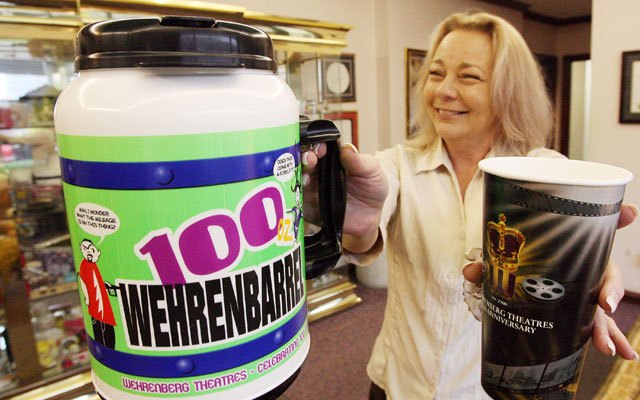New York City Mayor Michael Bloomberg and other self-appointed nutrition czars are probably very upset. The New York Supreme Court Appellate Division, First Department, unanimously upheld a lower court’s decision that the New York City soda ban is unconstitutional.
The Ban
In the words of the court, “The Sugary Drinks Portion Cap Rule, dubbed the ‘Soda Ban,’ prohibits New York City restaurants, movie theaters and other food service establishments from serving sugary drinks in sizes larger than 16 ounces.”
Besides grossly infringing on individual liberty, the soda ban also picks winners and losers in the food and beverage industry. For example, winners include alcoholic beverages, because they aren’t subject to the ban. However, losers include sweetened juices that are subject to the ban.
The ban also doesn’t apply to all businesses. For example, restaurants would be subject to the ban, but grocery stores would be exempt.
Why the Ban Got Shot Down
Mayor Bloomberg wanted to get his soda ban in place even if that meant going around the New York city council. This is exactly what he did, despite at least 14 council members requesting that there be a vote. The New York City Board of Health moved forward with the ban on its own. The court held that, in so doing, the board was acting outside of its lawfully delegated authority.
In New York City, the city council has the legislative power. The Board of Health, an administrative body, disregarded the city council’s power and in effect took its own legislative action. The court found that the board was not just making public health decisions but also making its own public policy decisions, weighing public health against other interests:
Such mechanism [the soda ban] necessarily looks beyond health concerns, in that it manipulates choices to try to change consumer norms.…
Instead of offering information and letting the consumer decide, the Board’s decision effectively relies upon the behavioral economics concept that consumers are pushed into better behavior when certain choices are made less convenient. For instance, the regulation makes the choice to drink soda more expensive, as it costs more to buy two 16-ounce drinks than to buy one 32-ounce drink. As a result, the Board necessarily concluded, as a threshold matter, that health concerns outweigh the cost of infringing on individual rights to purchase a product that the Board has never categorized as inherently dangerous. (Emphasis added.)
A Win for Freedom, a Loss for the Food Police
Mayor Bloomberg and the Board of Health seek to use their power to change consumer behavior. This assumes that citizens are ignorant and must be protected from themselves.
This is often referred to as a “nanny state mentality,” but in many respects even that description is too kind. These actions are being made not necessarily out of concern for those who aren’t taking the “correct” actions but out of the perceived harms to those who have to bear the health care costs of these undesired actions.
All of this comes down to individual rights. Bloomberg, in seeking implementation of the soda ban, infringes on individual rights, ignoring the fact that if we are to live in a free society, we must accept that none of us will make perfect choices all the time. A society is not free if we can’t choose how we want to live our lives or if politicians and bureaucrats think they can foist their preferred lifestyle choices on their citizens.
Looking Forward
Bloomberg has claimed that he will now take his soda ban fight to New York’s highest state court. Hopefully, the courts will continue to protect the individual rights of New Yorkers from one mayor’s misguided and dangerous crusade.
